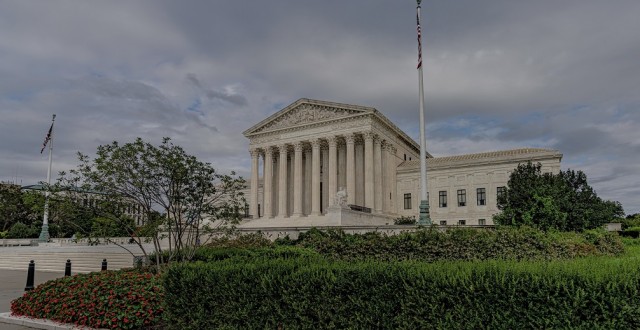
- Mediation
- Arbitration
- Court Neutrals
- Online Dispute Resolution
- Technology
- Court Decisions
- More
- Legislation
- Healthcare
- Guest Posts
- John DeGroote
- John C. Fleming
- Rick Freeman
- Professor Peter Friedman
- Honorable W. Royal Furgeson, Jr.
- James M. Gaitis
- Laura A. Kaster
- Professor John Lande
- Philip J. Loree, Jr.
- Michael McIlwrath
- F. Peter Phillips
- Professor Alan Scott Rau
- Professor Thomas J. Stipanowich
- Professor S.I. Strong
- Richard Webb
- Glen M. Wilkerson
- International arbitration
- Regulation
- Sports and Entertainment
 JAMS Welcomes Karl Bayer to its Panel of NeutralsJAMS, the world’s largest private alternative dispute resolution (ADR) provider, is pleased to announce that Karl Bayer
JAMS Welcomes Karl Bayer to its Panel of NeutralsJAMS, the world’s largest private alternative dispute resolution (ADR) provider, is pleased to announce that Karl Bayer Class Action Waivers in Arbitration Agreements: The Twenty-First Century Arbitration Battleground and Implications for the EU CountriesLinda S. Mullenix, Morris & Rita Atlas Chair in Advocacy at the University of Texas School of Law, has written “Class Ac
Class Action Waivers in Arbitration Agreements: The Twenty-First Century Arbitration Battleground and Implications for the EU CountriesLinda S. Mullenix, Morris & Rita Atlas Chair in Advocacy at the University of Texas School of Law, has written “Class Ac Picking the Proper Technological Tool for Problem-Solving in ArbitrationProfessor Amy J. Schmitz, John Deaver Drinko-Baker & Hostetler Chair in Law and Co-Director of the Translational Data An
Picking the Proper Technological Tool for Problem-Solving in ArbitrationProfessor Amy J. Schmitz, John Deaver Drinko-Baker & Hostetler Chair in Law and Co-Director of the Translational Data An SCOTUS to Resolve Circuit Split Over Transportation Worker Exemption in the FAAToday marks the start of the United States Supreme Court’s new term. During the term, the nation’s highest court will re
SCOTUS to Resolve Circuit Split Over Transportation Worker Exemption in the FAAToday marks the start of the United States Supreme Court’s new term. During the term, the nation’s highest court will re
Recent Posts
The Ethics and Practice of Drafting Pre-Dispute Resolution Clauses
Kristen M. Blankley, Associate Professor and Director of the Robert J. Kutak Center for the Teaching and Study of Applied Ethics at the University of Nebraska College of Law, has published “The Ethics and Practice of Drafting Pre-Dispute Resolution Clauses,” Creighton Law Review, Vol. 49, No. 4, pp. 743-774, 2016.
Continue reading...Second Circuit Upholds Employment-Related Class-Action Waiver Requiring Individual Arbitration
On September 2nd, a panel for the Second Circuit Court of Appeals ruled in a summary order that an employer’s mandatory class action waiver requiring workers to engage in individual arbitration is enforceable and does not violate the National Labor Relations Act (“NLRA”).
Continue reading...Affiliation Bias in Arbitration: An Experimental Approach
Sergio Puig, Associate Professor at the University of Arizona James E. Rogers College of Law, and Anton Strezhnev, PhD candidate in the Department of Government at Harvard University, have published a thought-provoking article entitled “Affiliation Bias in Arbitration: An Experimental Approach,” Arizona Legal Studies Discussion Paper No. 16-31.
Continue reading...The Arbitrator Survey: Practices, Preferences and Changes on the Horizon
Edna Sussman, SussmanADR LLC, has published “The Arbitrator Survey: Practices, Preferences and Changes on the Horizon,” The American Review of International Arbitration, 2015/Vol. 26, No. 4.
Continue reading...Arbitration
Thomas Stipanowich, Academic Director for the Straus Institute for Dispute Resolution, William H. Webster Chair in Dispute Resolution, and Professor of Law at Pepperdine University School of Law, and Veronique Fraser, Group for the Prevention and Resolution of Disputes (G-PRD) and Assistant Professor of Law at the University of Sherbrooke, have published “The International Task Force on Mixed Mode Dispute Resolution: Exploring the Interplay between Mediation, Evaluation and Arbitration in Commercial Cases,” Fordham International Law Journal, Forthcoming; Pepperdine University Legal Studies Research Paper No. 2017/4.
Continue reading...Mediation
By Holly Hayes While the use of mediation for conflict resolution is gaining strength in a number of industries, a recent accreditation standard (LD.01.03.01) issued by The Joint Commission is expected to prompt hospitals to explore an expanded use of mediation to manage conflict in the healthcare setting. The new Leadership Standard: Conflict Management Standard LD.01.03.01 became effective January 2009. The overall standard states, “The governing body is ultimately accountable for the safety and quality of care, treatment, and services.” Elements of Performance, or how The Joint Commission will score the standard, include: Development of a code of conduct that defines acceptable, disruptive, and inappropriate behaviors; and creation and implementation of a process for managing disruptive and inappropriate behaviors. Mediation is one tool a governing body can approve and a leadership team can implement to manage disruptive behavior among: management and staff, all levels of clinical staff, vendors and hospital staff, governing board members; and patients and staff to name a few. An outside, neutral mediator can be hired or contracted on a contingency/as-needed basis or internal staff can be trained in mediation techniques. By definition, a mediator is impartial and neutral; a facilitator, not a decision maker; and does not advise, evaluate or advocate for any particular resolution. Mediation gives the parties involved the ability to determine the outcome and resolution of their issues. The mediation process is simple, but can have a profound effect on the outcome of a dispute. Both parties share their concerns without interruption. The mediator may then ask questions for clarification and will develop a problem statement to summarize the issues to be addressed during the mediation. At some point, the mediator may meet privately with one or both of the parties and anything discussed privately cannot be shared unless agreed upon by the party and the mediator. Typically, the parties then brainstorm together to develop solutions for their issues. If an agreement is reached, a written resolution is developed which is final and binding when signed by both parties. As stated by the American College of Physician Executives (ACPE) and American Organization of Nurse Executives (AONE), “Disruptive behavior in a health care setting can lead to an unsafe environment for patients.” Mediation can be an effective tool to resolving conflict to enhance patient safety and improve the future working relationship of the parties involved.
Continue reading...Healthcare Disputes
Legal Research
About Disputing
Disputing is published by Karl Bayer, a dispute resolution expert based in Austin, Texas. Articles published on Disputing aim to provide original insight and commentary around issues related to arbitration, mediation and the alternative dispute resolution industry.
To learn more about Karl and his team, or to schedule a mediation or arbitration with Karl’s live scheduling calendar, visit www.karlbayer.com.














